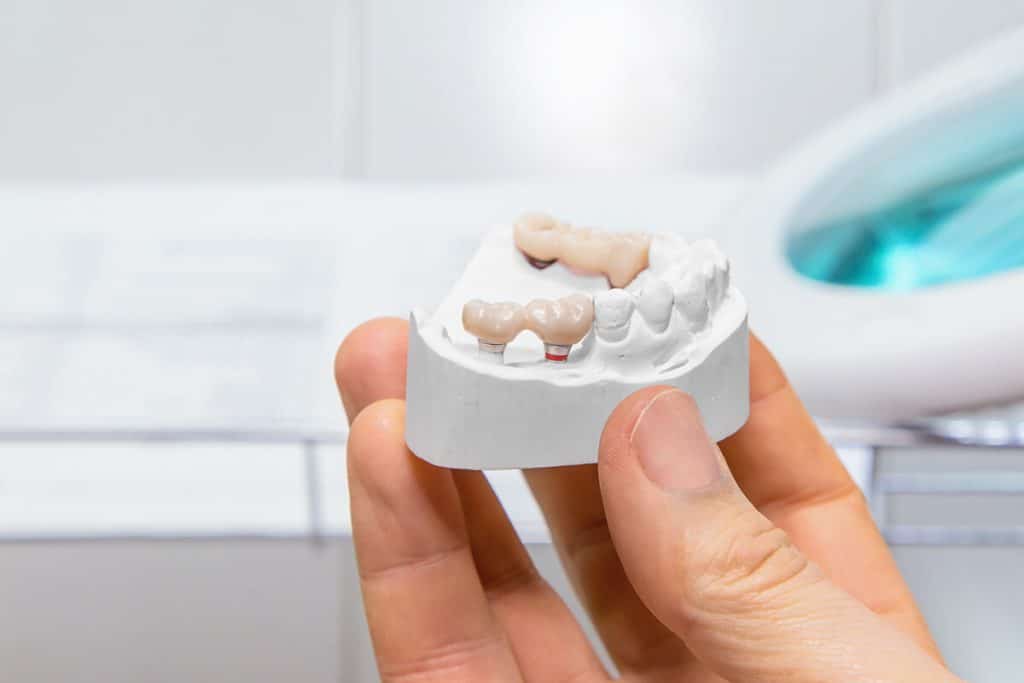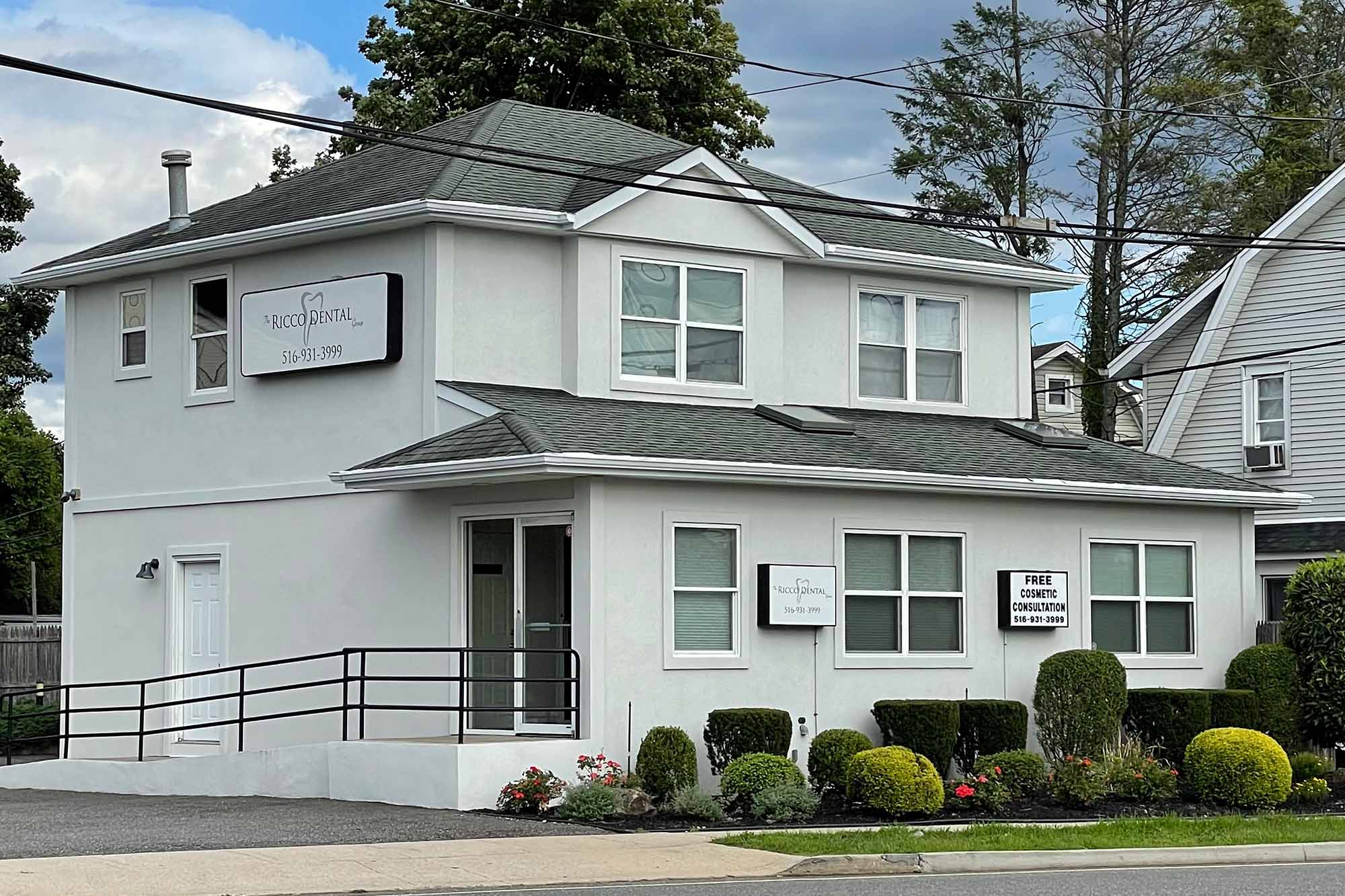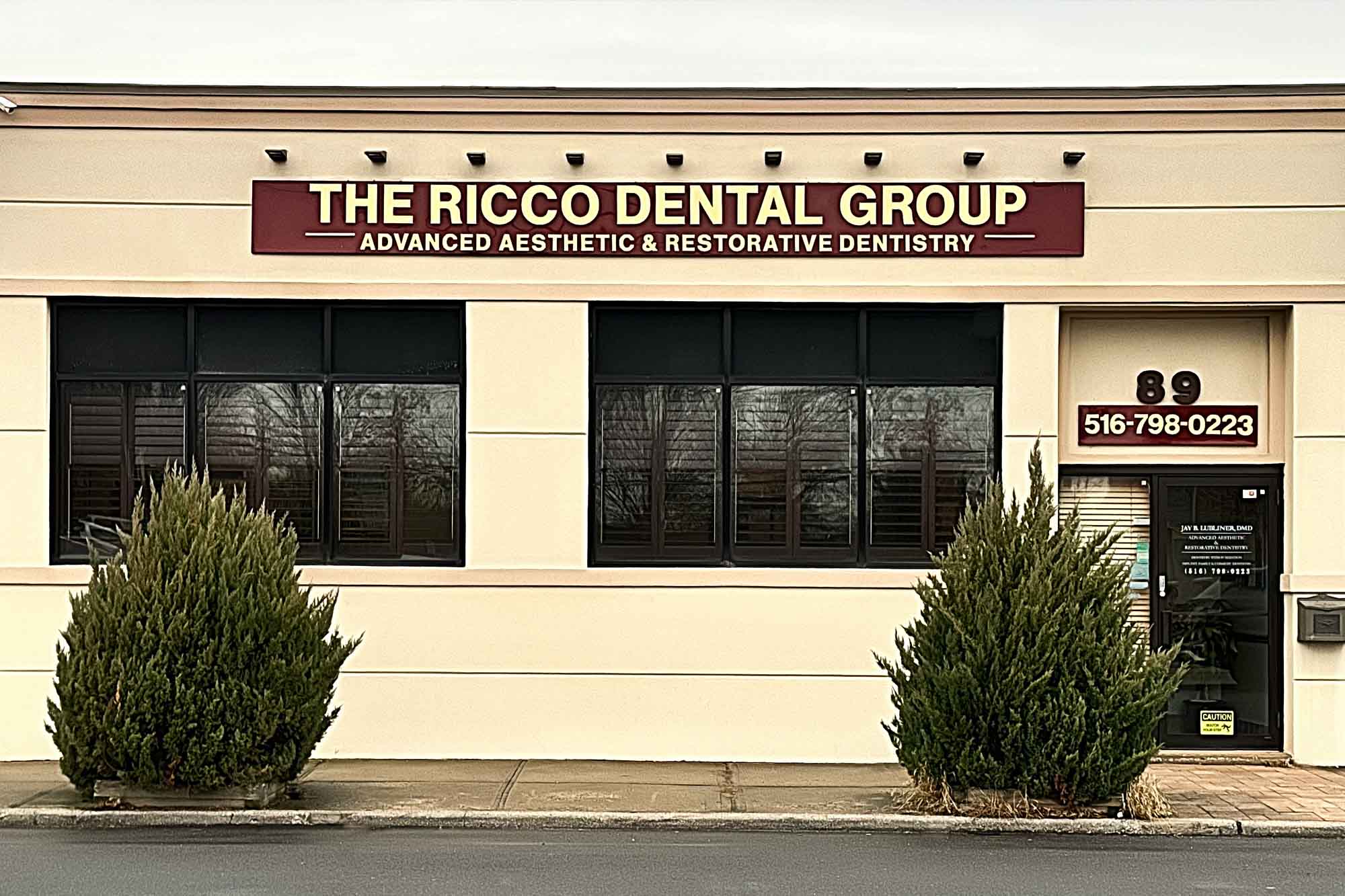The Pros and Cons of Dental Bridges

If you need to replace two or more missing teeth that are adjacent to each other, you have three potential solutions available to you: dentures, dental bridges, or dental implants. Each of these options has their own unique pros and cons, and not every solution is right for every patient. Below, we’ll take a closer look at the advantages and disadvantages of dental bridges.
What Are Dental Bridges?
Dental bridges get their name from the way they bridge the gap in a smile. These restorations use a system of supports, or abutments, to hold in place one or more prosthetic teeth (pontics). There are a few different options available for dental bridges:
- Traditional bridges are the most common type of bridge and involve using the two teeth on either side of the gap as abutments. To accomplish this, these teeth are trimmed down so crowns can be affixed to them; the crowns hold the prosthetic teeth in place.
- Maryland bridges are not as strong as traditional bridges because instead of securing the prosthetic teeth with crowns, they use a metal or porcelain framework that is bonded to the backs of the supporting teeth. This type of bridge is more affordable and less invasive than a traditional bridge, but its relative weakness is an important disadvantage to consider.
- Cantilever bridges are used when only one neighboring tooth is available to support a restoration With all of the stress of supporting the pontic being placed on a single tooth, cantilever bridges can leave the abutment tooth prone to damage and are typically only used when no other options are available.
- Implant-supported bridges are an increasingly popular solution that places no stress on neighboring teeth because they’re supported by dental implants.
The Advantages of Dental Bridges
There are many reasons you may wish to choose a dental bridge over a denture or single-tooth dental implant for replacing one or more missing teeth. These include:
- More of the cost of dental bridges is likely to be covered by dental insurance than that of dental implants.
- Dental bridges are often more affordable than dental implants, particularly when multiple teeth must be replaced.
- The process of getting a dental bridge is less invasive and requires fewer trips to the dentist than dental implants.
- Traditional dental implants may not be an option for patients who have lost bone mass in the jaw unless they get bone grafting or other supplemental procedures.
- Fixed dental bridges are more stable and last longer than traditional partial dentures.
The Disadvantages of Dental Bridges
Here are some of the reasons patients decide against getting a dental bridge:
- Dental bridges only replace the visible portion of a missing tooth, while dental implants replace the crown and the root. This provides a more stable restoration and prevents bone loss in the jaw.
- When bone in the jaw is lost, it can cause facial collapse and a prematurely aged appearance.
- Dental implants are stronger than a bridge, especially when compared to a Maryland bridge or cantilever bridge.
- Crowns used to secure a traditional bridge compromise the integrity of otherwise healthy teeth, while dental implants are self-supporting.
Learn More About Dental Bridges
Is a dental bridge the right choice for you? If you have questions or you’d like to learn more about our options, contact us today at 516-798-0223 to schedule an appointment.




